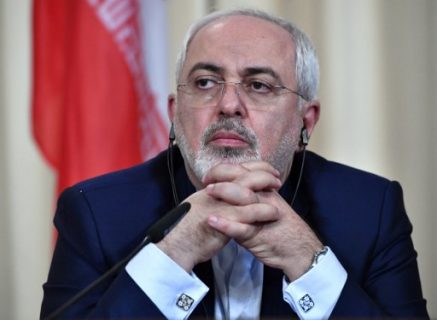
TEHRAN, Iran (AFP) — Iran’s Foreign Minister Mohammad Javad Zarif on Monday urged Qatar and neighboring Gulf Arab countries that have severed diplomatic ties with it to engage in dialogue to resolve their dispute.
“Neighbors are permanent; geography can’t be changed. Coercion is never the solution. Dialogue is imperative, especially during blessed Ramadan,” Zarif tweeted, referring to the Muslim month of fasting.
Zarif also phoned his Qatari counterpart to discuss the latest development, and also spoke to the foreign ministers of Arab and Muslim countries, including Algeria, Turkey, Indonesia and Iraq.
Foreign ministry spokesperson Bahram Ghasemi said in a statement that a solution to the differences between Qatar and its three Gulf neighbors “is only possible through political and peaceful methods and dialogue between the parties.”
Saudi Arabia, Bahrain and the United Arab Emirates, plus Egypt and Yemen, on Monday announced they were cutting all ties with Qatar, accusing it of supporting extremism, in the biggest diplomatic crisis in the region for years.
Ghasemi said increased tension among its southern neighbors “is not to the benefit of any governments in the region and threatens the interests of all” at a time when the world was “suffering widespread terrorism and extremism.”
Shiite Iran has had no diplomatic ties with most of the mainly Sunni Gulf states since 2016, when Arab nations followed Saudi Arabia in severing relations after protesters torched its missions in the Islamic republic.
“Using sanctions in today’s integrated world is inefficient, to be condemned and unacceptable,” Ghasemi added of Qatar’s neighbors closing all land, sea and air links with it.
“Protecting the national sovereignty of independent governments, avoiding interference in their internal affairs and respecting recognized international borders are internationally recognized and fundamental rights which must be respected by all sides.”
Meanwhile the head of Iran’s agricultural products export union said his group was ready to fill in for expected food shortages in Qatar, which relies on imports from its neighbors.
According to Fars news agency, Reza Noorani said his union had teamed up with Iran’s Valfajr Shipping Line, which is ready to transport Iranian goods to Qatar through the port cities of Bushehr, Bandar Abbas and Bandar Lengeh.
Saudi Arabia also closed its borders with Qatar, effectively blocking food and other supplies exported by land to Qatar — prompting panicked shoppers to flood supermarkets in Doha.
© Agence France-Presse






